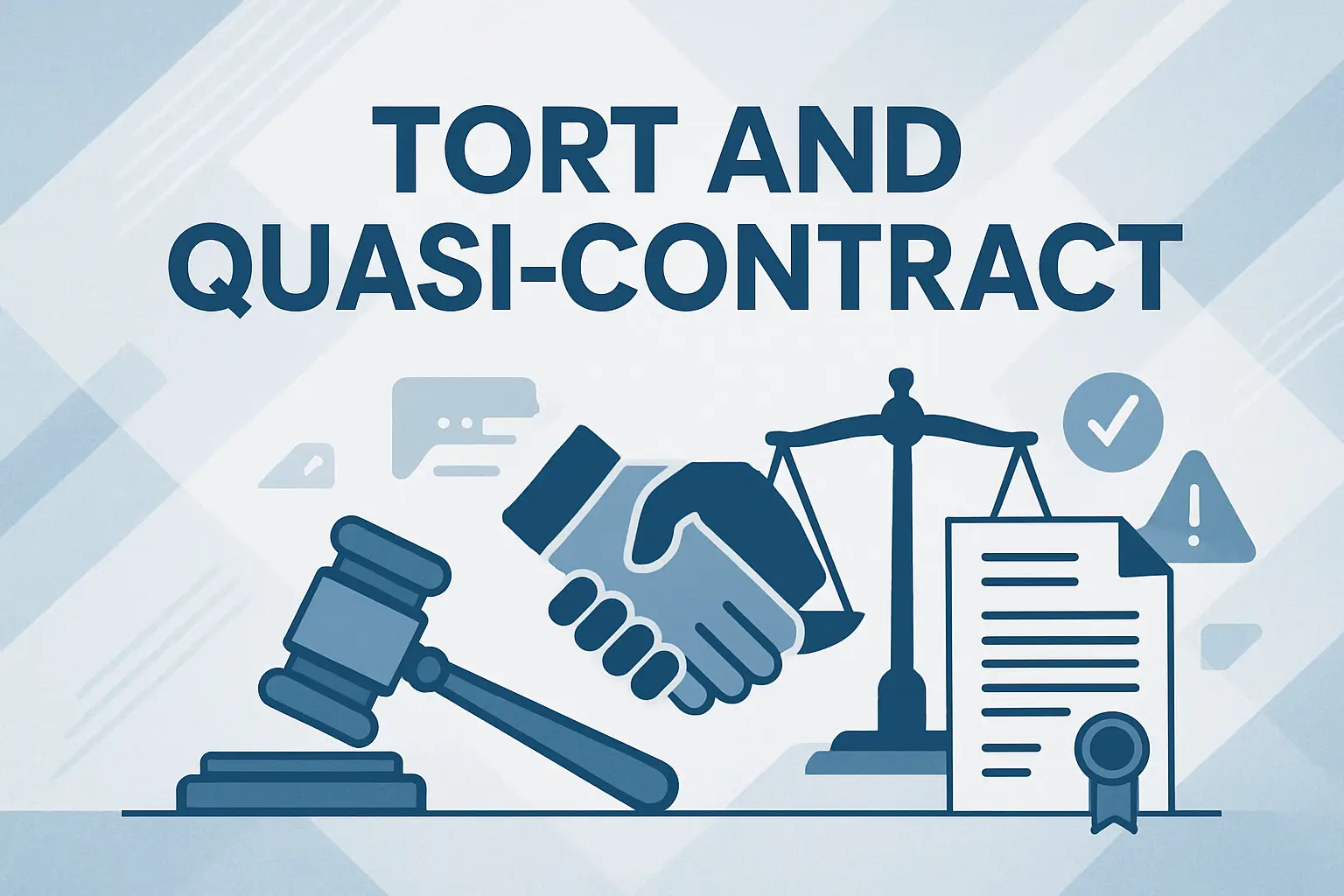Quasi-contracts arise in situations where the law imposes liability on a person to compensate another, not because of an explicit agreement, but due to the receipt of money or benefits to which the other party has a superior claim. The underlying principle is to prevent unjust enrichment—no person should unjustly profit at another’s expense.
Legal Basis and Theories
The traditional (orthodox) theory viewed quasi-contractual obligations as stemming from a contract implied by law, hence their classification alongside contract law. However, the more widely accepted view today is that quasi-contracts are sui generis—that is, they form a distinct category based on the doctrine of unjust enrichment, not on any form of consensual agreement. This position is supported by Lord Wright in Fibrosa Spolka Akcyjna v. Fairbairn Lawson Combe Barbour Ltd. (1943) AC 32, who asserted that the essence of quasi-contractual liability is the prevention of unjust gain.
The subject is governed in India by Chapter V of the Indian Contract Act, 1872.
Distinctions from Tort and Contract
Unlike torts (where duties are owed to society as a whole), quasi-contractual obligations are owed to specific individuals. Recovery in quasi-contract typically involves liquidated damages (fixed, ascertainable amounts), as opposed to the unliquidated damages (assessed by courts) common in tort claims. In these respects, quasi-contracts are more similar to contracts.
However, unlike contracts (where obligations arise from agreement), both quasi-contracts and torts involve obligations imposed by operation of law. Yet there is a unique difference: In quasi-contract, the duty to return money or benefit is a secondary or remedial obligation arising after the event (e.g., mistaken payment), whereas in tort and contract, there is always a primary legal duty and its breach creates the remedial duty (Winfield & Jolowicz, Tort).
Key Case Illustrations
- Moses v. Macferlan (1760) 2 Burr 1005:
Lord Mansfield first clearly stated that a person who has been unjustly enriched at another’s expense should be required to make restitution. - United Australia Ltd. v. Barclays Bank Ltd. (1947) AC 1 (HL):
Lord Atkin emphasized the principle that the basis of a plaintiff’s claim in quasi-contract is restitution for unjust enrichment. - Lipkin Gorman v. Karpnale Ltd. (1991) 2 AC 548 (HL):
A firm successfully recovered money lost by a partner who had gambled with stolen client funds, highlighting the protection against unjust enrichment. - Sales Tax Officer, Banaras v. Kanhaiyalal Mukund Lal Saraf, AIR 1959 SC 135:
The Supreme Court of India held that money paid under a mistake (whether of law or fact) is recoverable under Indian law, citing Section 72 of the Contract Act. This departure from the English limitation (then applicable only for mistakes of fact) was later mirrored by developments in English law (Woolwich Equitable Building Society v. Inland Revenue Commissioners (No. 2) AC 70; Kleinwort Benson Ltd. v. Lincoln City Council 4 All ER 513). - State of Kerala v. Aluminium Industries Ltd. (1965) 16 STC 689 (SC):
This case affirmed that the principle in Kanhaiyalal’s case (refund of money paid by mistake) was correct, confirming that recovery is possible on the ground of unjust enrichment. - Mafatlal Industries Ltd. v. Union of India, (1997) 5 SCC 536:
The Supreme Court clarified that refunds are only permissible if the claimant did not pass on the burden to someone else, preventing double recovery.
These authorities reinforce that quasi-contractual obligations exist to prevent retention of benefits which, in justice and good conscience, should be returned, and that such duties differ fundamentally from those arising in tort or from actual contractual agreements.

